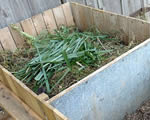 Go to main content
Go to main content
Archive Website of the UK government
Please note that this website has a UK government accesskeys system.
Main menu
Page menu
Environment and greener living

Smoke control areas

In certain parts of the country, you’re not allowed to use some fuels that cause smoke. This doesn’t apply if you have a stove, boiler, cooker or heater that is listed as exempt. Find out about smoke control areas, fuels you can and can’t use, and which appliances are exempt.
What is a smoke control area?
Do you live in a smoke control area?
Find out by contacting your local council
Smoke control areas were introduced as part of the Clean Air Act. They were brought in to deal with air pollution in the 1950s and 1960s that was caused by coal fires in the home and in industry.
A local authority can decide to make all or part of a district a smoke control area. In a smoke control area, you are not allowed to burn certain fuels that cause smoke in a fireplace, furnace or boiler. If you do burn fuels that smoke, you could be fined up to £1,000 for each offence. By law, these fuels are also not allowed to be sold to anyone in a smoke control area who doesn't have an exempt appliance.
To see a copy of the Clean Air Act, visit the link below.
Do I live in a smoke control area?
You can find out from your local council whether you live in a smoke control area. Ask for the pollution team in your council’s environmental services department. Your council should also be able to give you details of the fuels and appliances that you are allowed to use in smoke control areas.
What you can burn in a smoke control area
You are legally only allowed to use certain types of fuel in a smoke control area:
- anthracite
- semi-anthracite
- gas
- low volatile steam coals
- authorised fuels
You can find details of fuels that are approved within smoke control areas on the Department for Environment, Food and Rural Affairs (Defra) website.
Appliances that are exempt and can burn non-authorised fuels
Some exempted boilers, cookers, heaters and stoves are allowed to burn non-authorised fuels. These fuels include:
- wood
- coal
- wood chips and pellets
You can find details of exempt appliances on the Defra website.
Some exempt appliances can still give off smoke if they are not properly used. You should always follow the manufacturer’s advice on using and maintaining any appliance, and on the types of fuel that should be used.
Using oil or kindling in a smoke control area
Oil or other liquid fuel can be used in a smoke control area if burnt in a fireplace specially designed or adapted for liquid fuel.
Kindling can sometimes be used in a smoke control area. Some local authorities require a gas poker to be used to start the fire. Others allow a reasonable amount of kindling wood, paper or firelighters.
You should find out which rules apply in your area from your local council's environmental health or protection department. To find this department, contact your council by phone or email, or look on their website.
Smoke from bonfires

Contact your council to find out about garden waste recycling
You are allowed to burn 'green' garden waste (for example, sticks and leaves) on a bonfire in a smoke control area. However, your bonfire should not cause a nuisance to any neighbours or local residents. You can find out more about the rules on bonfires in the article ‘Bonfires and the law’.
You can recycle most of your garden waste either in a compost bin at home, or at your local waste and recycling centre. Many councils also collect larger amounts of garden waste in their regular recycling collections. You can find out more about home composting in the article ‘Composting’.
Contact your local council to find what garden waste recycling options are in your area.
Smoke from barbecues and chimineas
You are allowed to have barbecues or chimineas inside and outside of smoke control areas.
However, in smoke control areas, barbecues that let out smoke through chimneys of buildings may not be allowed unless they use gas or electricity. An example of this may be some sort of summerhouse.
 Facebook
Facebook Twitter
Twitter StumbleUpon
StumbleUpon Delicious
Delicious Reddit
Reddit